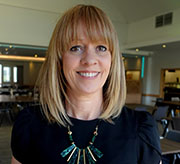What makes a good L&D event
Pull through page title
Pull through abstract and format in bold and large font
Whether you're planning a workshop, seminar, or training session, ensuring that your Learning and Development (L&D) event is effective and impactful requires careful consideration and strategic planning.
Here are 5 things you need to consider when hosting your L&D event to ensure that your event is successful, resonates with your attendees, and provides your organisation with a good return on investment (ROI).
1. Defined goals and objectives
The first step in what makes a good L&D event is having defined goals and objectives. Ask yourself, what are you trying to achieve with your event? How does it support your organisational vision and values? How will you measure its success and impact?
By answering these questions, you can clarify the purpose, scope and outcomes of your event, and design it accordingly to maximise your L&D ROI and attendee satisfaction.
2. Specifically tailored to your delegates
The next step is to understand your target audience and their needs. What are their learning preferences, needs and expectations? What are their current knowledge and skill gaps? What are their motivations and challenges?
By answering these questions, you can understand your audience better, and tailor your event to suit them, thus eliminating any risk of covering topics that your attendees already understand and reduce attendee disengagement. You could also segment your audience into different groups and personalise your event accordingly if needed.
3. Engaging content and structure
For an L&D event, it is very important that the format and content of your event is engaging, interactive and learner centric.
You should consider the learning styles, needs and expectations of your participants, and create and deliver your content accordingly. You could also use a variety of methods and media to deliver your content, such as presentations, videos, games, quizzes, case studies, etc, to help make the event more engaging.
The content of your event should also be relevant, up-to-date and evidence based. You should use the latest research, data, and best practices to inform your content, and provide practical examples and applications.
You should also ensure that your content is aligned with the learning outcomes and objectives of the event, and that it covers the essential knowledge and skills that your participants need.
4. The right event space and execution
The right event space can be instrumental in defining what makes a good L&D event. The event space has a significant impact on the quality and effectiveness of your event, as it affects the mood, atmosphere, and overall experience of your participants.
The event space you need will be dependent on the delivery format that you choose. For example, if your event mostly centres around delivering seminars to a wide audience, you may want to look at utilising large conference spaces , if your L&D event is specifically training focused, you may want to look at training venues and so on.
There are many different types of event spaces to choose from, however, to ensure a good experience for your delegates, you should consider picking a venue that is:
- Convenient and accessible. It should be easy to reach by public transport or car and have ample parking spaces.
- Comfortable and spacious. It should have enough room to accommodate your participants, and provide them with comfortable seating, lighting, temperature and ventilation. It should also have enough space for breakout sessions, networking (if applicable), and socialising.
- Equipped and flexible. It should have all the necessary equipment and facilities for your event, such as audio-visual systems, Wi-Fi, power outlets, etc
- Professional and supportive. It should have a dedicated and experienced team of staff who can assist you with the planning, organisation, and delivery of your event. They should also be able to provide you with additional services, such as catering, security, cleaning, etc, if that is what your event entails.
5: Evaluations and follow ups
It is imperative that you follow up with your attendees after any event, but especially a learning event. How can you be sure if your event achieved its objectives and your attendees left having learnt something useful to the business if you do not follow up with them?
Ask both yourself and your attendees how the event went, did it meet its goals and objectives? Did it satisfy your participants’ needs and expectations? Did it have a positive impact on your organisation’s performance and culture?
By answering these questions, you can assess the effectiveness and ROI of your event, using various methods and metrics, such as feedback surveys, tests, interviews, observations, etc. You can also identify the strengths and weaknesses of your event and make improvements for the future.You should also consider providing your participants with ongoing support and resources, such as e-learning modules, coaching sessions, online communities, etc. This will help to reinforce the learning outcomes and objectives of your event and ensure that the knowledge and skills acquired are successfully transferred and applied in the workplace.
If you are interested in booking with Warwick Conferences for your next L&D event, you can contact us at hello-conferences@warwick.ac.uk, or call us on +44 (0)24 7652 3222 to arrange an informal conversation.
Warwick Conferences can also help you measure the success and impact of your L&D programme, using the L&D Barometer tool . This tool allows you to assess the effectiveness and ROI of your L&D event, using eight key steps and metrics.
 Justine Meek
Justine Meek
Agency Relationships Manager at Warwick Conferences and Director of Agent Relations at The Meeting Industry Association. Justine has over 30 years within the meetings and events industry, with 13 of these at Warwick Conferences. She manages the third-party agents for the business, forming great relationships and offering solutions for their client’s needs.
J dot K dot Meek at warwick dot ac dot uk

